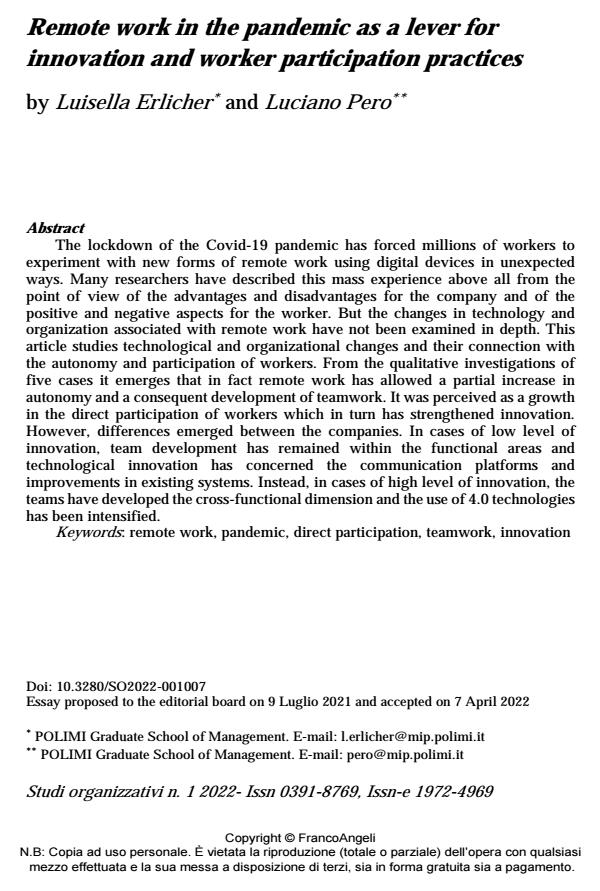Remote work in the pandemic as a lever for innovation and worker participation practices
Journal title STUDI ORGANIZZATIVI
Author/s Luisella Erlicher, Luciano Pero
Publishing Year 2022 Issue 2022/1
Language English Pages 23 P. 154-176 File size 236 KB
DOI 10.3280/SO2022-001007
DOI is like a bar code for intellectual property: to have more infomation
click here
Below, you can see the article first page
If you want to buy this article in PDF format, you can do it, following the instructions to buy download credits

FrancoAngeli is member of Publishers International Linking Association, Inc (PILA), a not-for-profit association which run the CrossRef service enabling links to and from online scholarly content.
The lockdown of the Covid-19 pandemic has forced millions of workers to experiment with new forms of remote work using digital devices in unexpected ways. Many researchers have described this mass experience above all from the point of view of the advantages and disadvantages for the company and of the positive and negative aspects for the worker. But the changes in technology and organization associated with remote work have not been examined in depth. This article studies technological and organizational changes and their connection with the autonomy and participation of workers. From the qualitative investigations of five cases it emerges that in fact remote work has allowed a partial increase in autonomy and a consequent development of teamwork. It was perceived as a growth in the direct participation of workers which in turn has strengthened innovation. However, differences emerged between the companies. In cases of low level of innovation, team development has remained within the functional areas and technological innovation has concerned the communication platforms and improvements in existing systems. Instead, in cases of high level of innovation, the teams have developed the cross-functional dimension and the use of 4.0 technologies has been intensified.
Keywords: Remote work, pandemic, direct participation, teamwork, innovation
- Emotional Intelligence and Networking Competencies Manisha Paliwal, Pravin Chavan, Nishita Chatradhi, Bindu Menon, pp.127 (ISBN:978-3-031-77542-0)
Luisella Erlicher, Luciano Pero, Remote work in the pandemic as a lever for innovation and worker participation practices in "STUDI ORGANIZZATIVI " 1/2022, pp 154-176, DOI: 10.3280/SO2022-001007